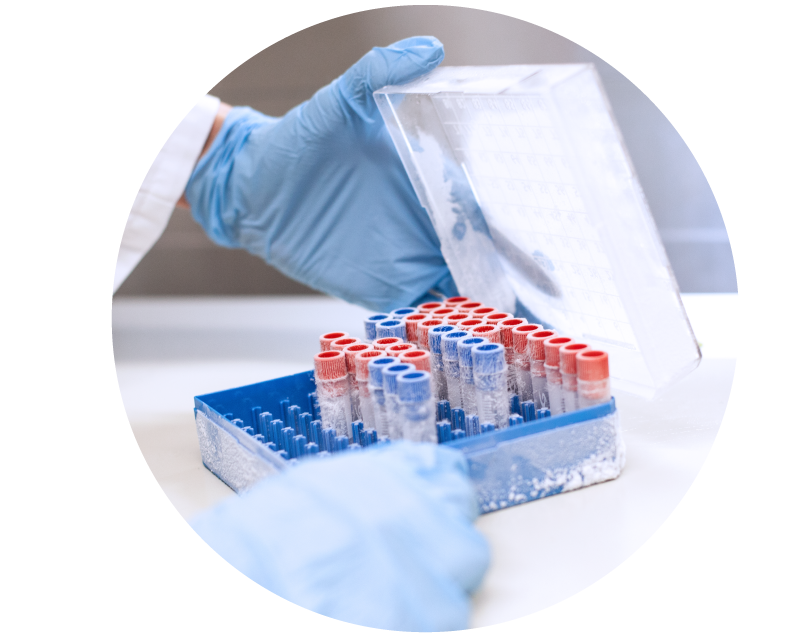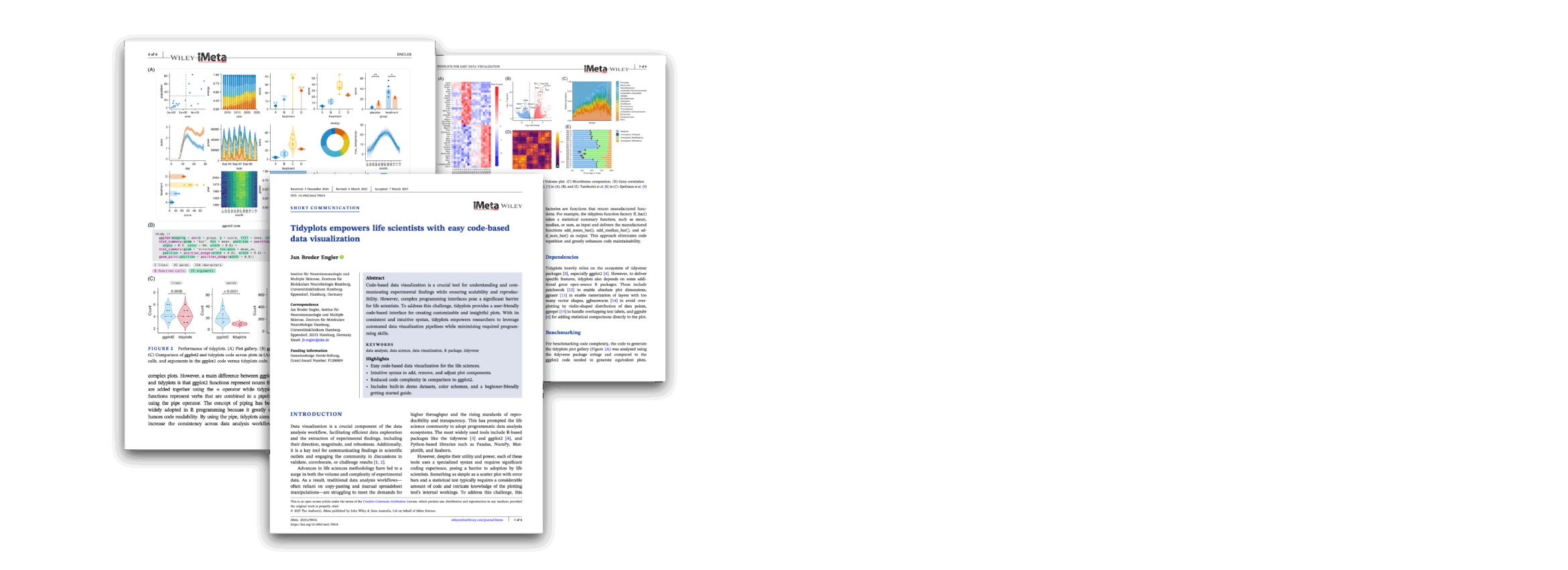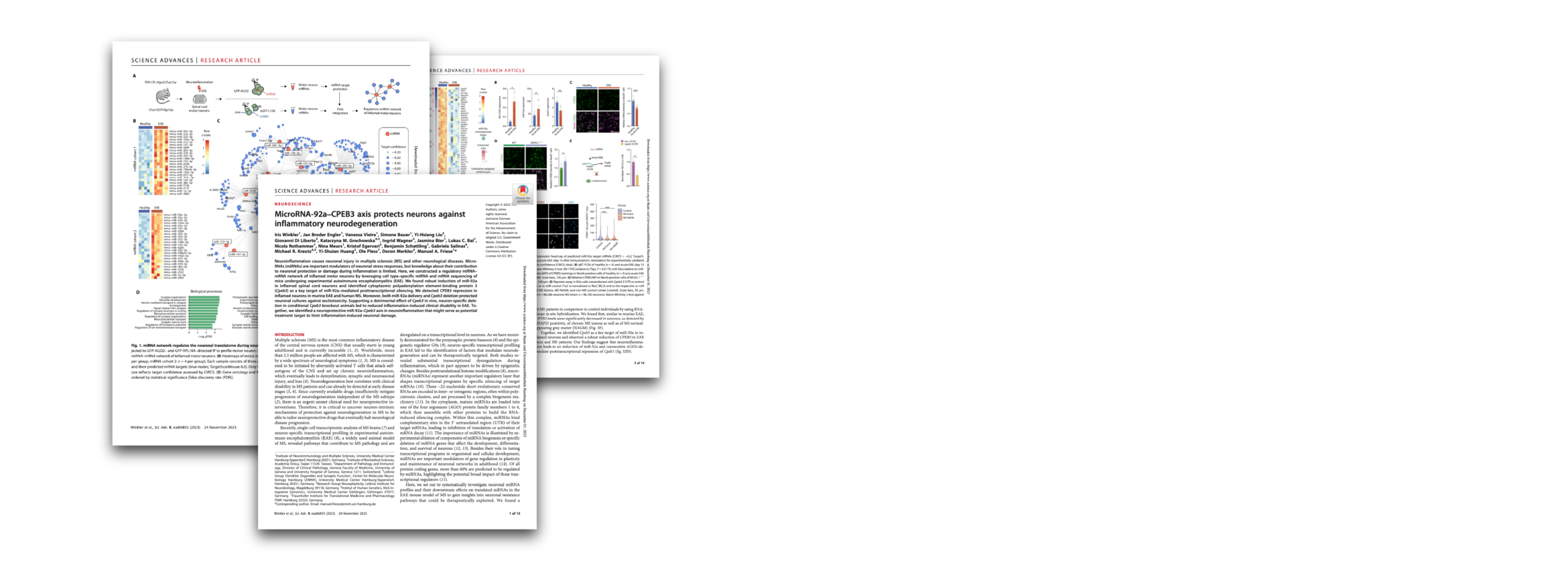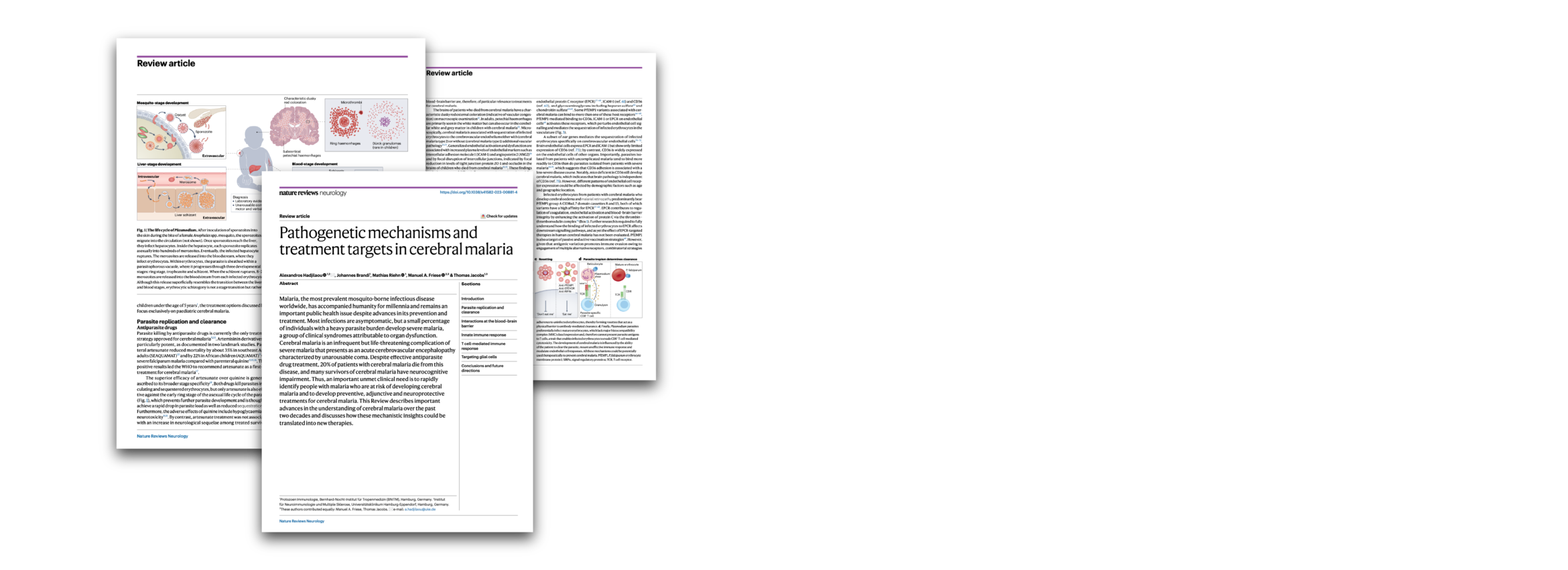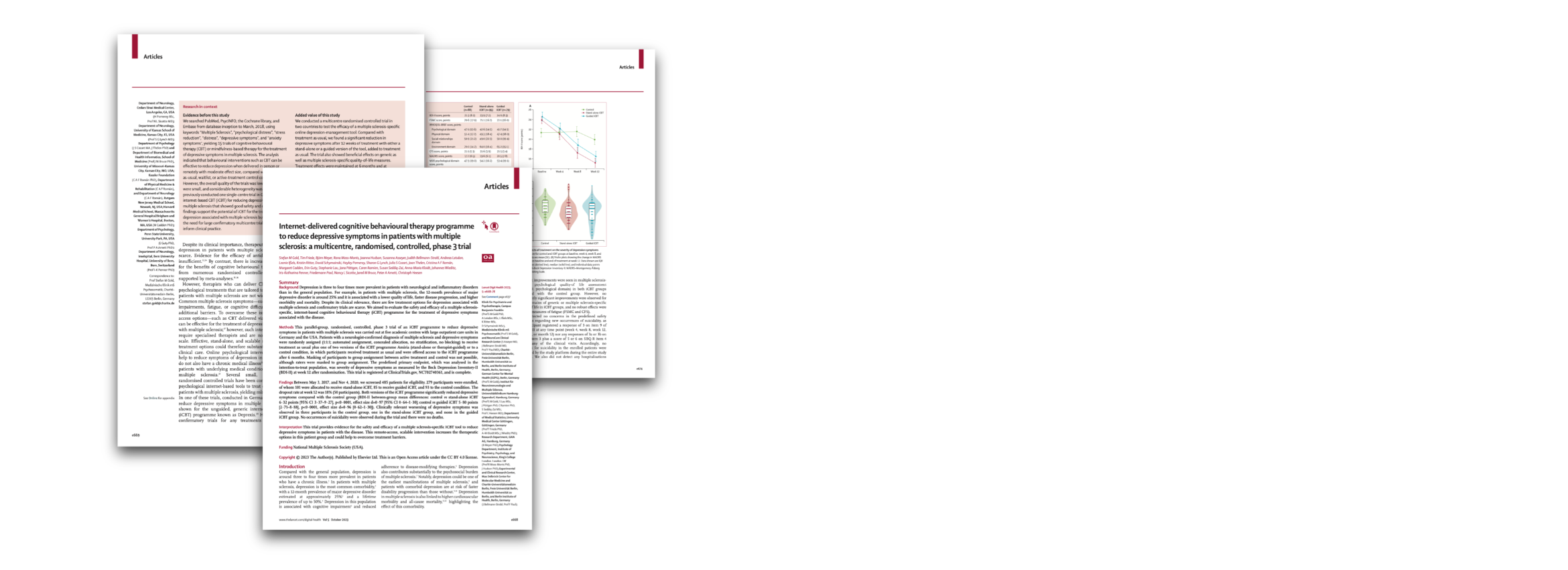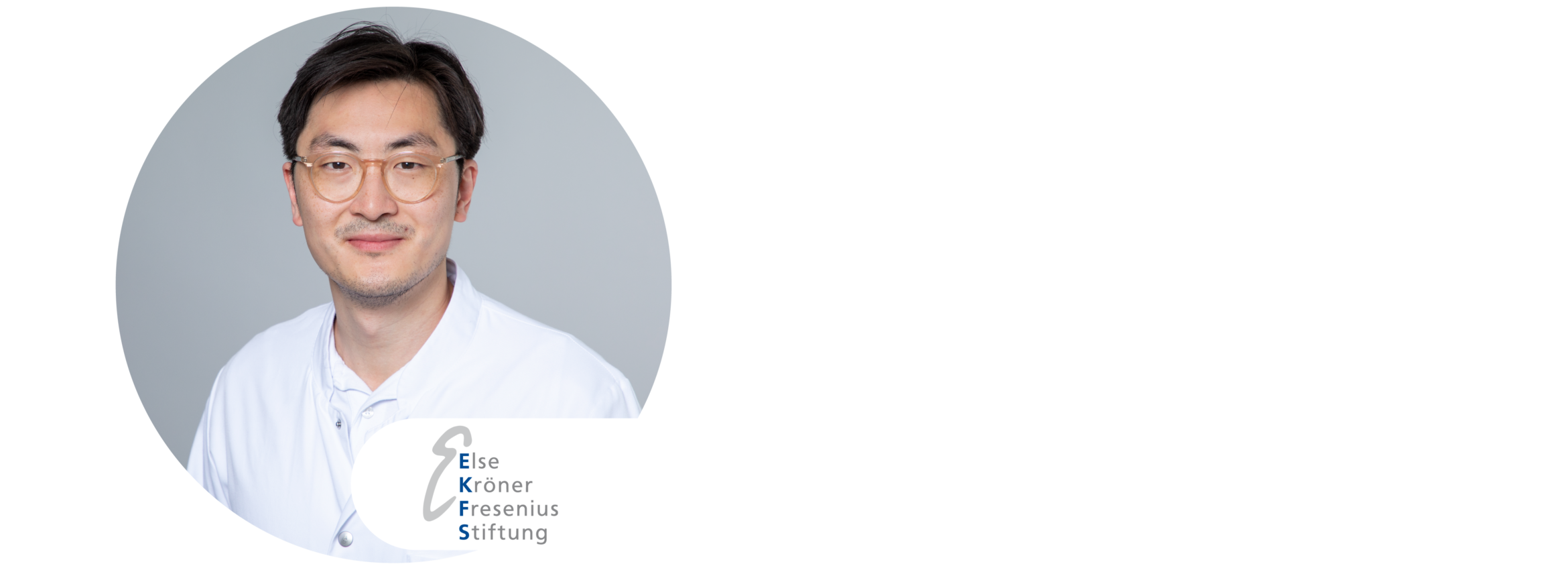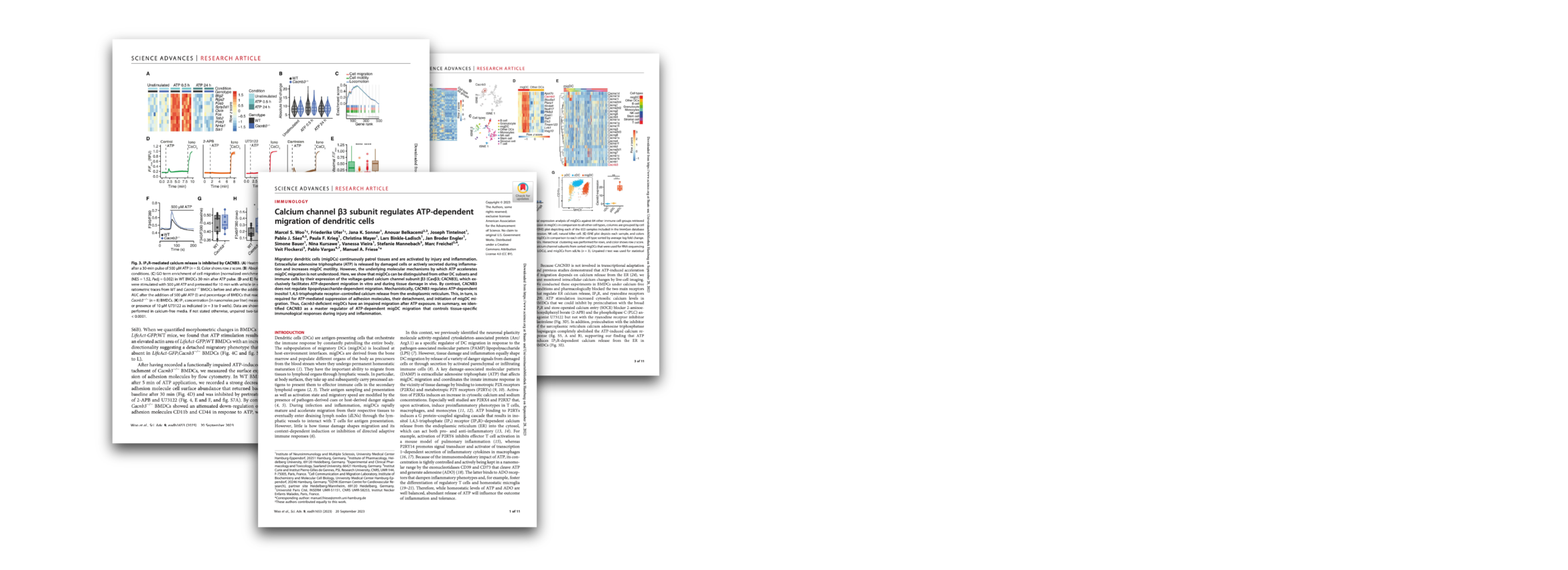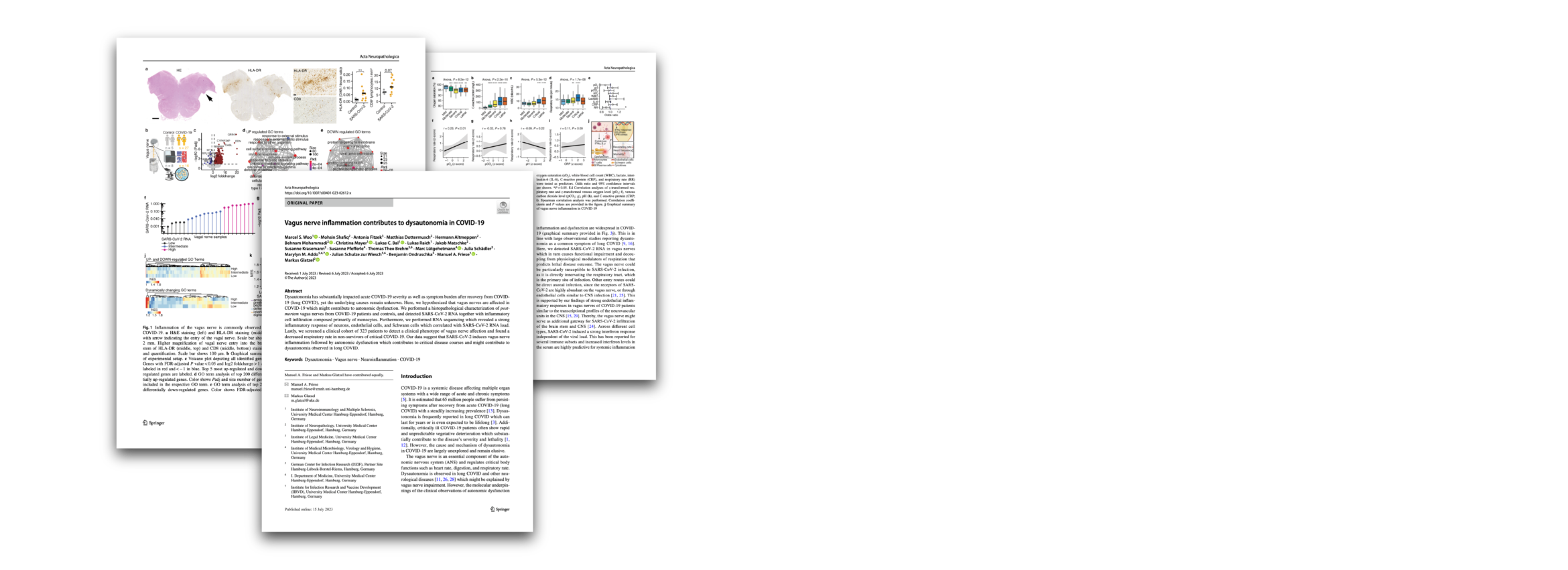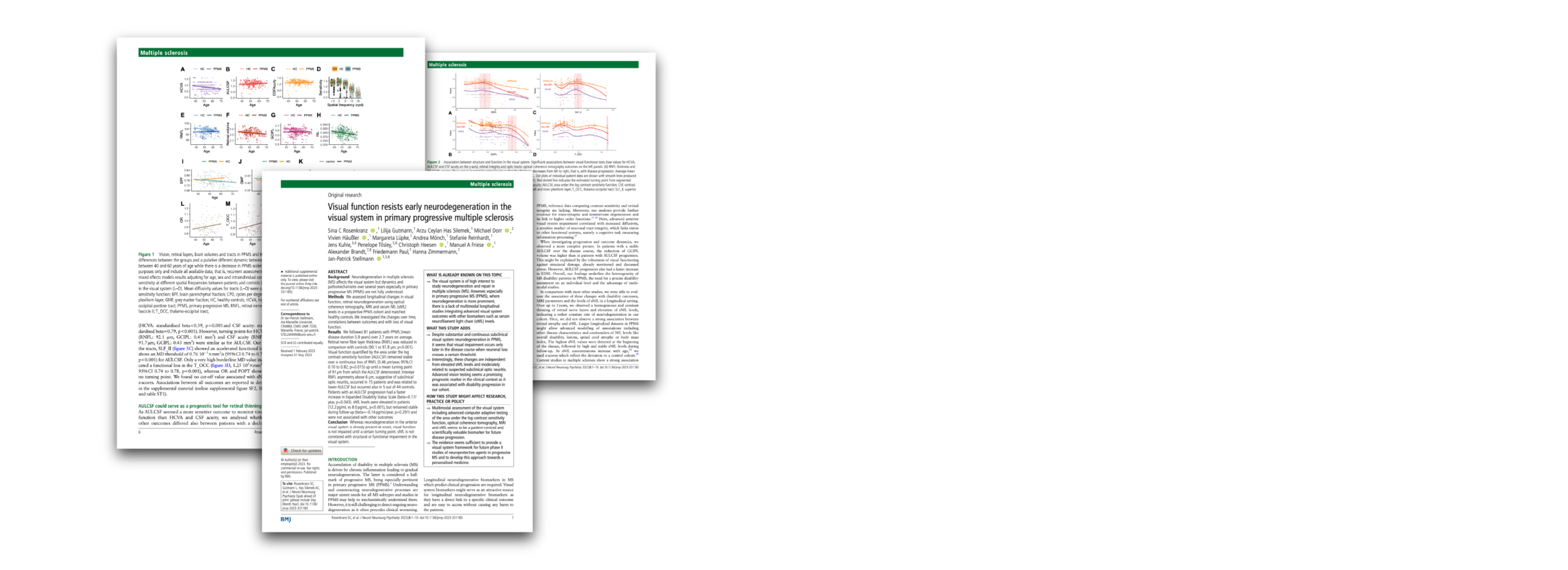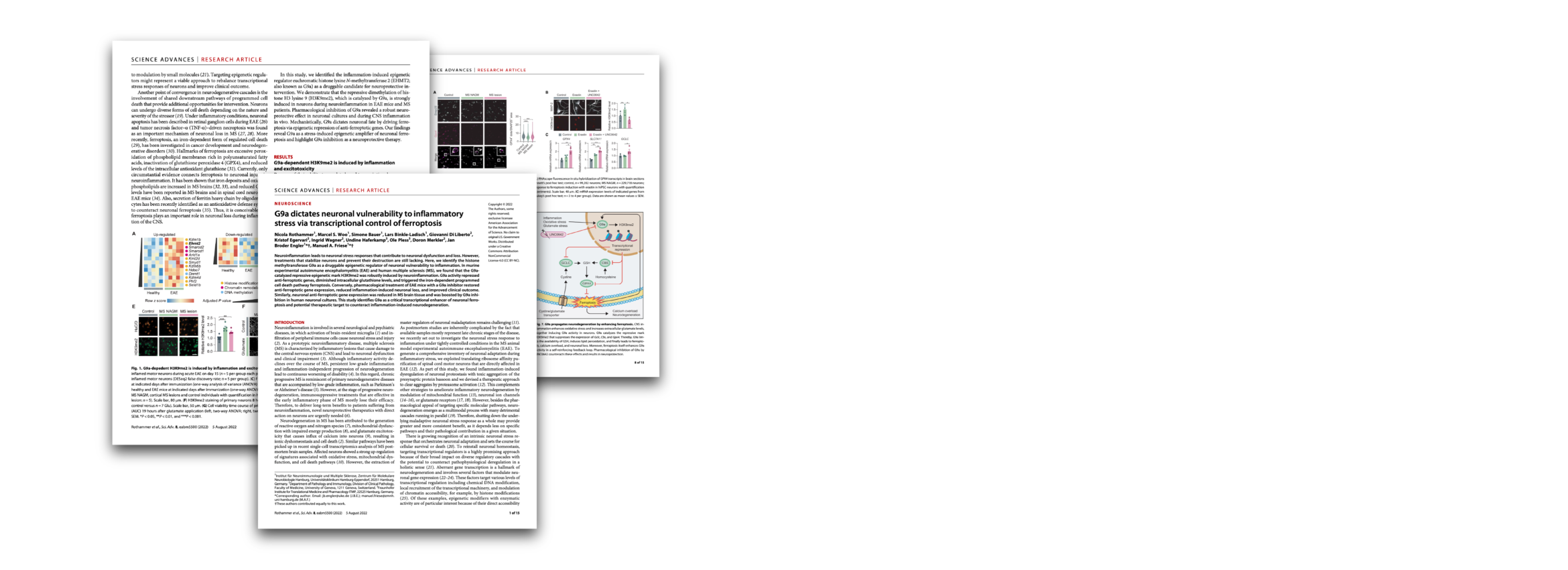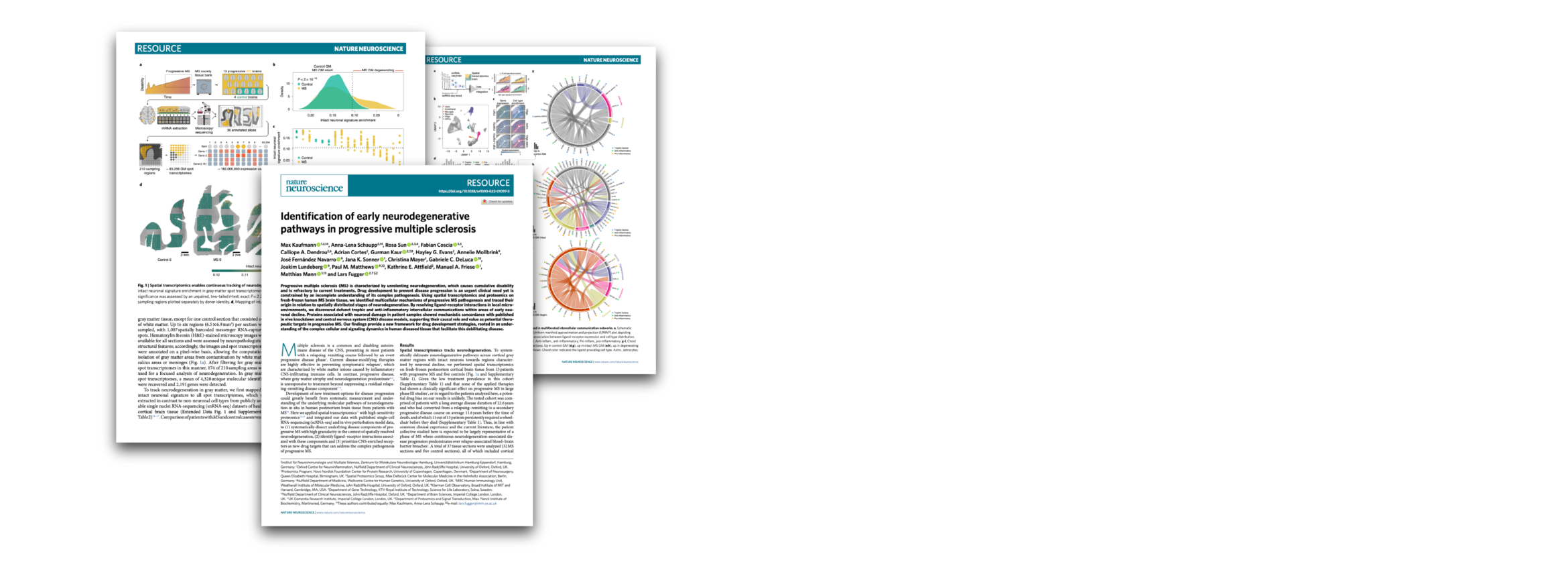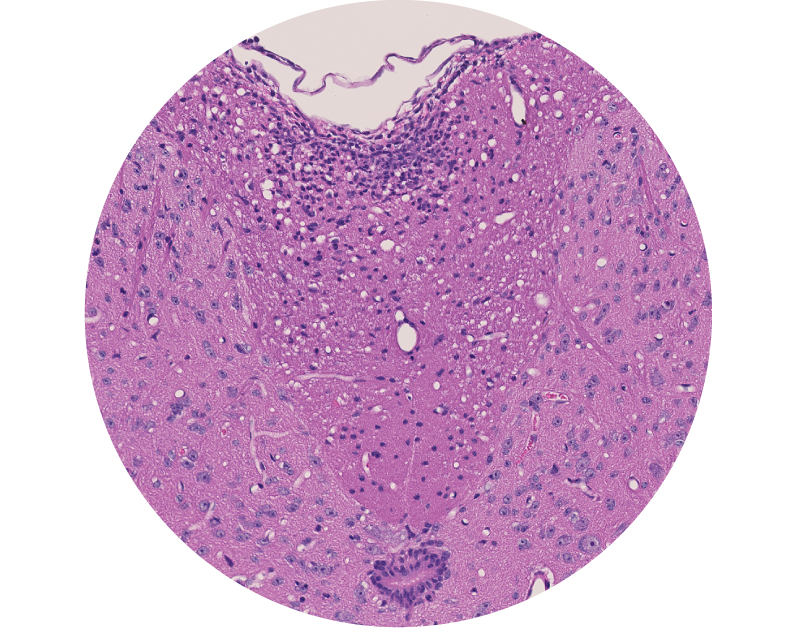
Immunology
Our immunological studies focus on what provokes autoimmunity. We aim to decipher the deregulated cell types in multiple sclerosis and other neuroimmunological diseases and here in particular T cells. We want to understand the molecules that serve as regulators of immune cell function and the effector molecules that invigorate an autoimmune response. In addition, learning from evolution, e.g. by understanding how sex differences and pregnancy shape immune responses, will help the quest for novel immunomodulatory treatments for neuroimmunological diseases.
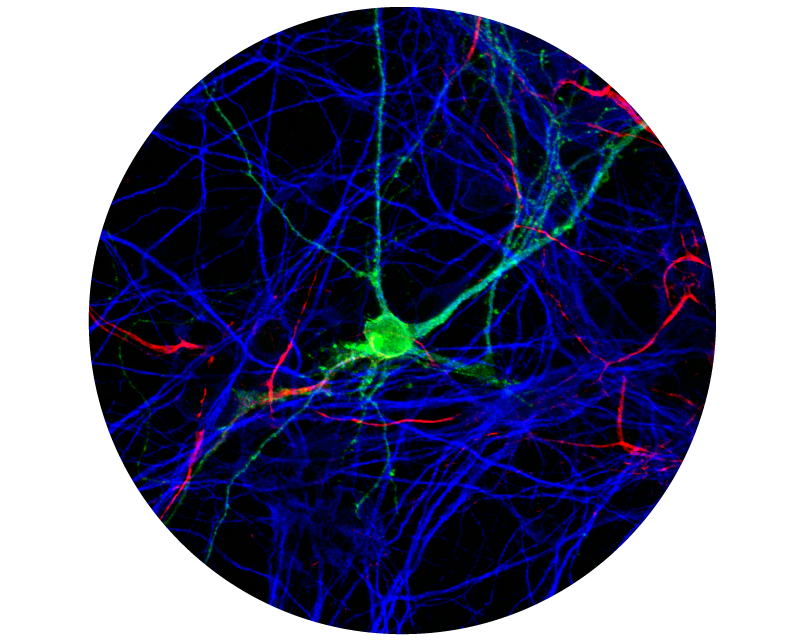
Neurobiology
Inflammatory insults lead to progressive degeneration of neurons and their axons that is key for the development of permanent neurological disability in chronic inflammatory diseases such as multiple sclerosis, but also in acute infections of the central nervous system. Our neurobiological studies focus on the molecular mechanisms of this inflammation-induced neuronal degeneration. Stress response pathways can determine neuronal injury, but hormetic stress also stimulates signalling pathways that enhance the abilities of neurons to resist inflammatory stressors. Thus, we aim at discovering molecular pathways that enhance neuronal resilience. Inhibiting damaging and cell death pathways or reinforcing protective pathways may lead to the development of novel interventions for neurodegenerative or neuroinfectious disorders. We aim at identifying, understanding and modulating key pathways in neurons to ameliorate neurodegeneration in multiple sclerosis and other neurodegenerative or neuroinfectious diseases.
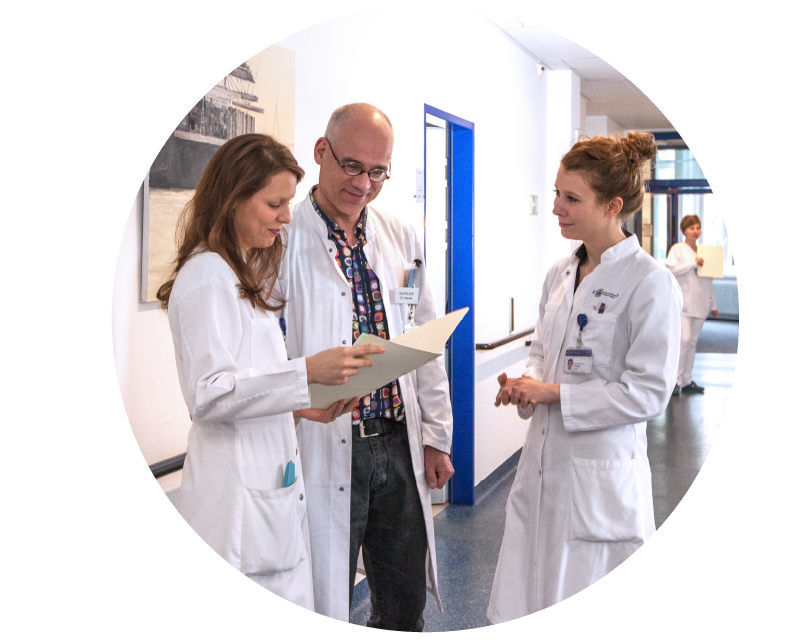
Clinical Research
Clinical research at the INIMS aims to develop treatments with a comprehensive translational approach. This includes assessment and consideration of psychosocial aspects of multiple sclerosis as well as educational, behavioural and lifestyle interventions in investigator-initiated trials. Moreover, we pursue pharmaceutical trials in the area of unmet clinical needs such as safe treatments in early multiple sclerosis, highly immunosuppressive approaches for aggressive multiple sclerosis but also new neuroprotective concepts. Complementing this approach, we conduct research to improve assessment tools, develop novel outcome parameters with clinical relevance, and optimize study designs.